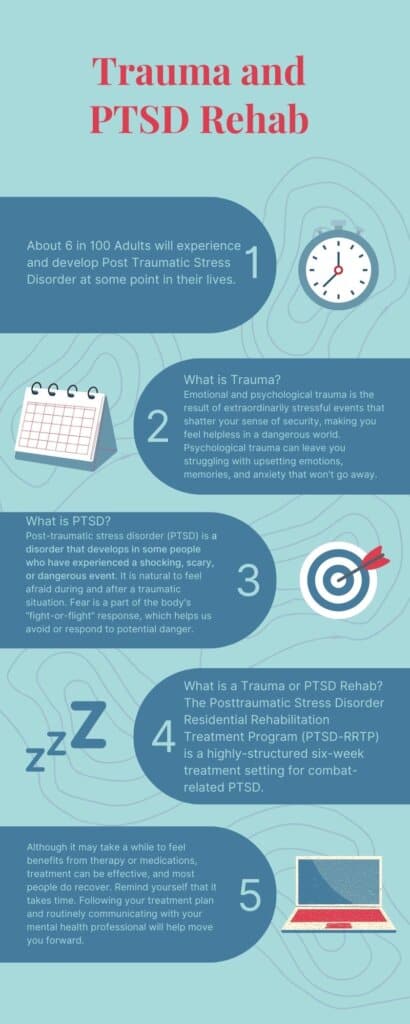Empowering Resilience: Evidence-Based Approaches in Massachusetts Trauma Rehab
Trauma is a highly distressful event from which moving on isn’t exactly easy. However, we must accept that the incident has occurred. And now, the appropriate steps must be taken to heal from it. Otherwise, the trauma develops into PTSD. Which is why we’ll be discussing evidence-based approaches in Massachusetts PTSD and trauma rehab.
Evidence-based approaches have the advantage of being backed by scientific evidence. This means that these methods have stood the test of time in having super successful results.
We will discuss a few of these approaches ahead including CBT, EMDR, MSBR, and several others. You’ll want to read ahead as one of these approaches has recorded an 84% remission rate in just 3 sessions!
Evidence-Based Approaches For Trauma Rehab
Cognitive-Behavioral-Therapy (CBT)
CBT focuses on relationships among thoughts, feelings, and behaviors. This is further accompanied by noting how changes in one domain might improve functioning in another.
You see, a patient might develop an unhelpful bias after experiencing some negative (traumatic) experience.
For instance, a person might believe that bad things happen to bad people. This means they might consider someone being raped as a bad person; and not that they have been very unjustly violated.
CBT focuses on helping people identify and change negative thoughts and behaviors that are contributing to their distress.
Eye Movement Desensitization And Reprocessing (EMDR)
EMDR is another evidence-based approach with a high success rate, this is the one we talked about above. Studies have proven its effectiveness time and again, for instance, this one study showed 84% remission on PTSD diagnosis. This was after just 3 90-minute sessions, showing its high success in a very short time.
EMDR involves moving the eyes in a specific way while the patient recalls traumatic memories. This aims to desensitize the emotional feelings associated with the traumatic experiences and promotes adaptive processing.
EMDR works perfectly well for reducing PTSD symptoms such as flashbacks, nightmares, and hypervigilance.
Mindfulness-Based Stress Reduction (MBSR)
This is (in simple words) a meditation and awareness technique that helps individuals stay in the present moment. This technique calms the person down and reduces stress related to the traumatic experience.
In meditation aimed towards trauma rehab, the person is asked to bring close sustained attention to their inner world. This inevitably means the person to come face-to-face with their trauma.
Now, that might seem scary, but with the right tools they can encounter the pain and process it until it isn’t scary anymore. That’s what the MBSR aims to develop within its patients.
For example, a first responder who is struggling with the aftermath of a natural disaster takes an MBSR class. He will learn mindfulness techniques that will help him cope with the stress and trauma of the event.
Other Evidence-Based Approaches For Trauma Rehab
There are numerous evidence-based approaches employed by trauma and PTSD rehab facilities in Massachusetts. Here’s a quick summary of a few of them:
- Prolonged Exposure Therapy (PE): Helps individuals gradually confront and process traumatic memories.
- Dialectical Behavior Therapy (DBT): Teaches individuals skills for managing emotions, regulating behavior, and tolerating distress.
- Trauma-Focused Cognitive-Behavioral Therapy (TF-CBT): A structured approach for children and adolescents to process trauma, develop coping skills, and rebuild a sense of safety.
- Group therapy: Provides a supportive and safe environment for trauma survivors to share experiences, learn from each other, and gain new perspectives.
- Medication: Can help manage symptoms such as anxiety, depression, and insomnia, facilitating recovery.
- Physical activity: Releases endorphins, improves mood, reduces stress, and promotes overall well-being.
- Nutrition: A balanced diet provides essential nutrients for mental and physical health, supporting recovery.
- Social support: The presence of supportive friends, family, and loved ones promotes healing and resilience.

Final Thoughts
Trauma and PTSD are often accompanied by a substance addiction. You might think substance abuse as bad but can you imagine waking up multiple times a night covered in sweat and heart racing, every single day?
This is what PTSD patients can be experiencing to the point that they might develop insomnia. And then they might take medication, which can also be medically prescribed, that helps them sleep. But over time, they can develop an addiction to it.
Don’t you think substance abuse was inevitable and maybe even justified?
In that case, the patients should seek dual diagnosis treatment. Let us know; we can help you with this step, reach out to Resilience Behavioral Health here or call 888.401.1179.

